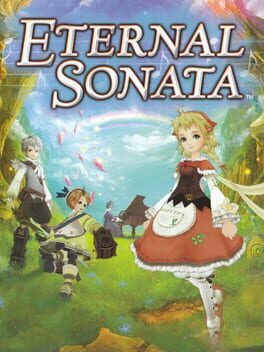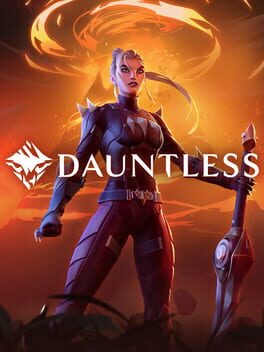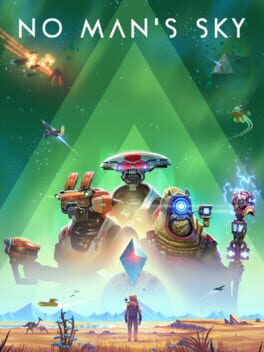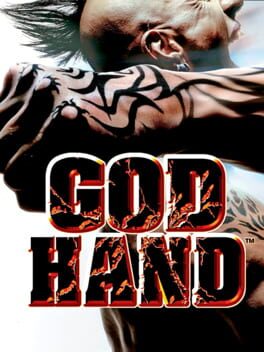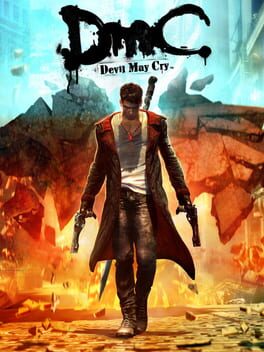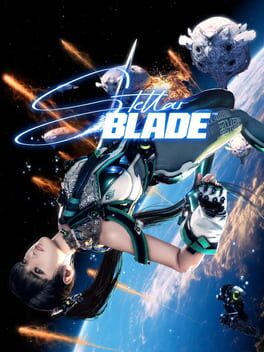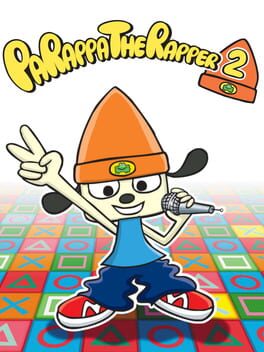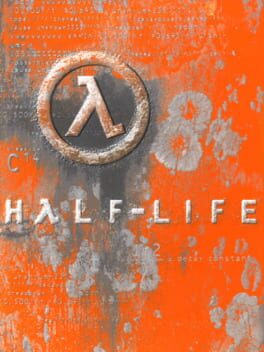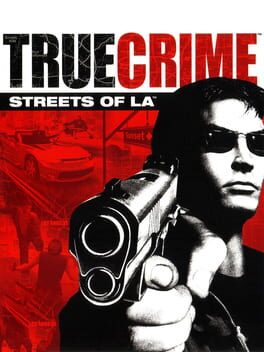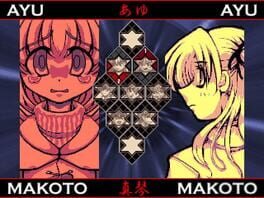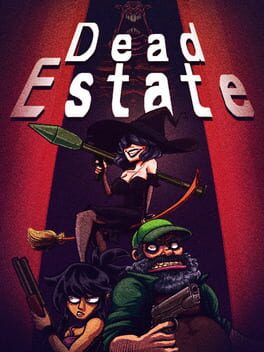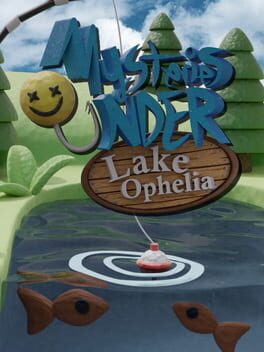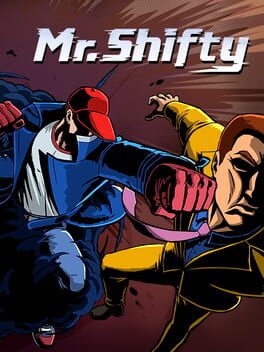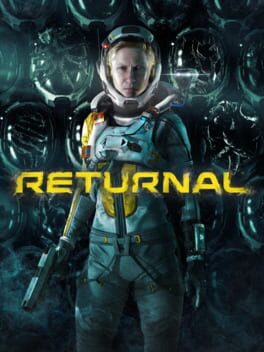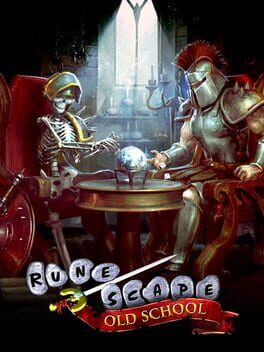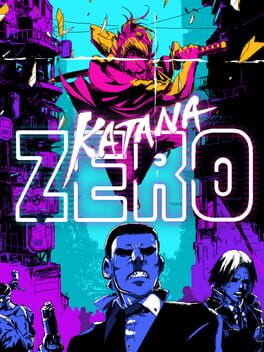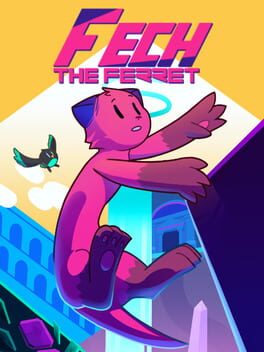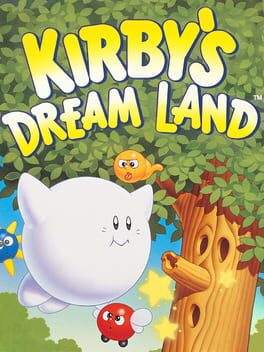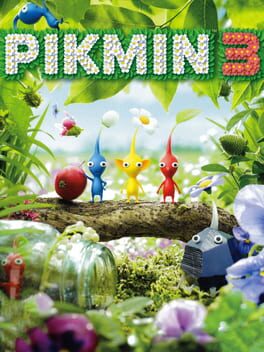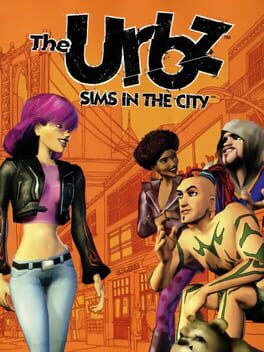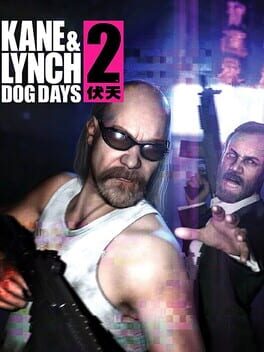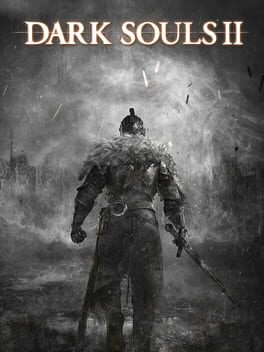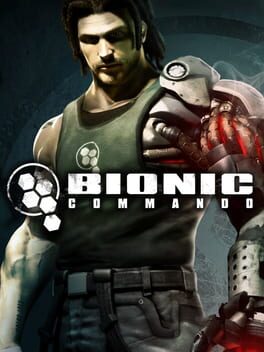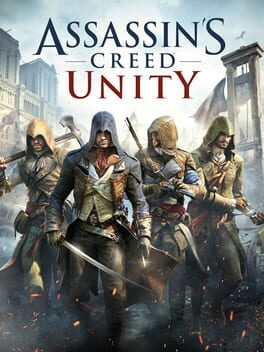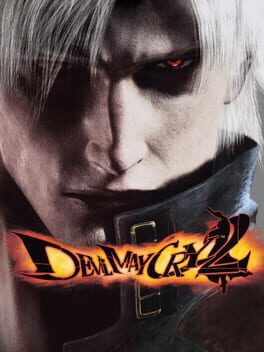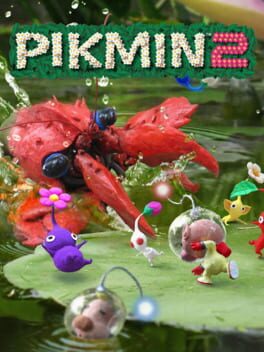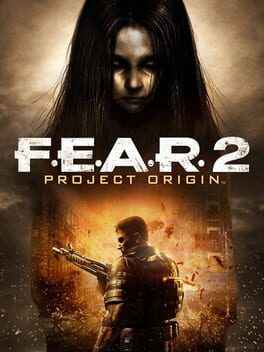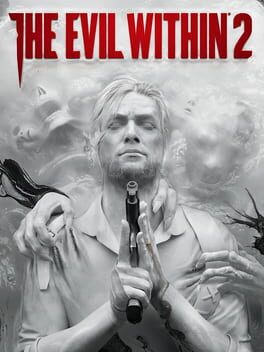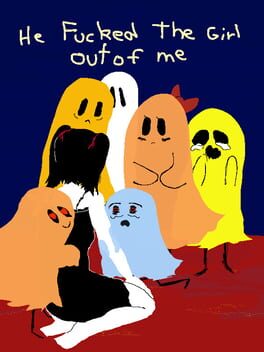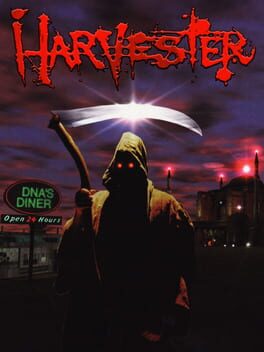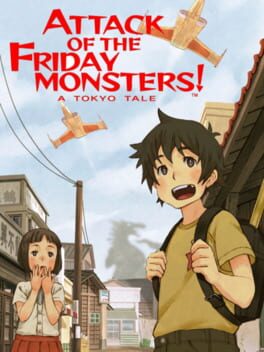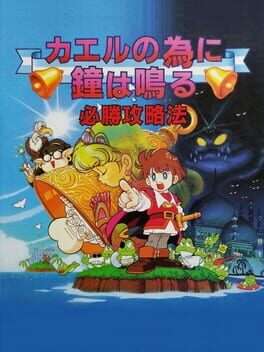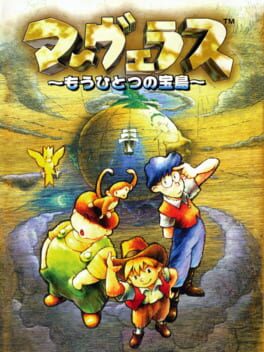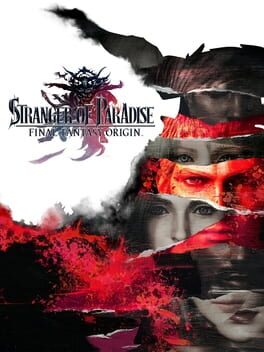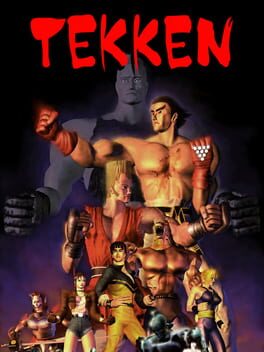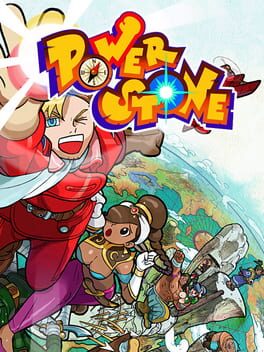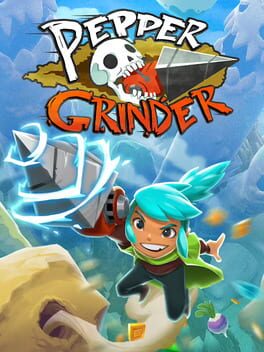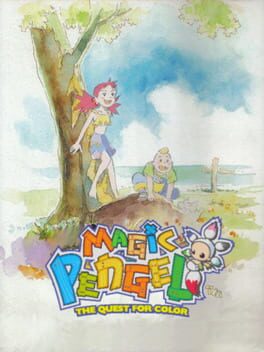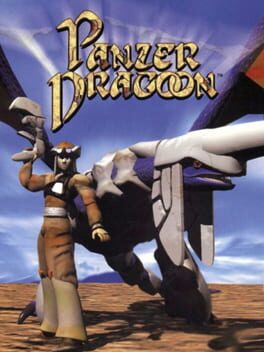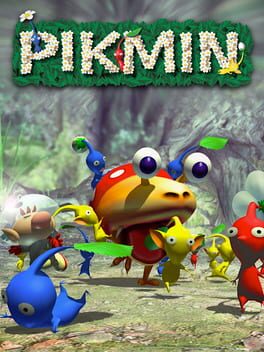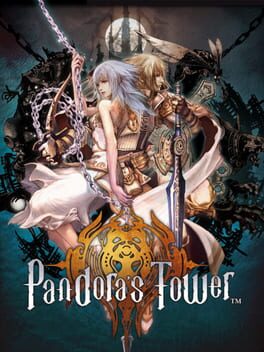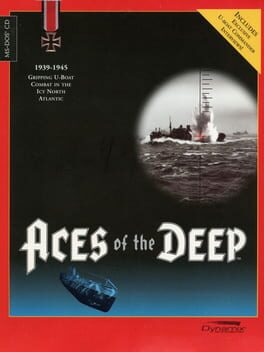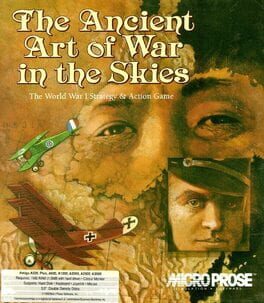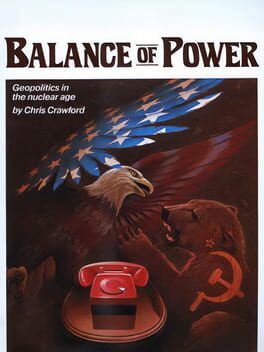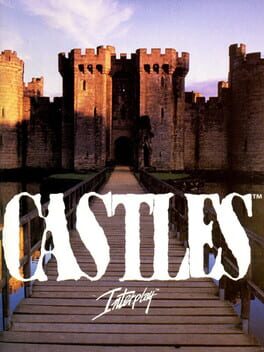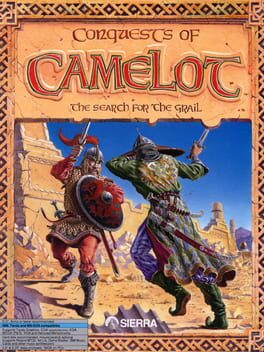184 reviews liked by sondi
Eternal Sonata
2007
Dauntless
2019
Drakengard
2003
Ninth bar.
"My, my, my", you say as you take a sip from your 300$ cup of Dom Pérignon, "what a misstep from a professional violinist that is..."
Little did you know that only a couple of minutes later you will get blown off orbit by Alfred Schnittke, inevitably staining your way-too-expansive-for-the-average-joe-huh costume.
For a (broad) genre that is so commonly associated with elitism and bourgeoisie, using atonality in classical music has always been a hell of a thing as it directly challenges orthodox forms of Western music but also goes against the conservatism way of seeing everything under the veil of """beauty""".
Most of the droning conversations surrounding Drakengard are about its janky (to say the least) gameplay and whether or not this was Yoko Taro's intent (as if meaning slipping away from the artist's hands would undermine all artistic value).
There's little to no room for discussion about these ear-scorching violins, making a soundtrack exclusively out of unapologetically aggressive sound collages in a world of grand melodramatic orchestras and nice subtle ambient tracks is a hell of a feast from Nobuyoshi Sano and Takayuki Aihara.
Heck, I'd even argue that it doesn't even serve as a mere companion piece for Drakengard, this is as much of an incredible exploration of the cycle of violence as the whole design use of detachment from death games usually provide, and both the soundtrack and the core game are much more effective at doing so than most works wearing their "so subversive" title up their sleeves I've experienced yet.
I want more abrasive and nightmarish soundscapes to drown in, this is pure hell through and through, I am crying, I am curled up in a ball, I feel like shit, I am gasping for air, I need more.
"My, my, my", you say as you take a sip from your 300$ cup of Dom Pérignon, "what a misstep from a professional violinist that is..."
Little did you know that only a couple of minutes later you will get blown off orbit by Alfred Schnittke, inevitably staining your way-too-expansive-for-the-average-joe-huh costume.
For a (broad) genre that is so commonly associated with elitism and bourgeoisie, using atonality in classical music has always been a hell of a thing as it directly challenges orthodox forms of Western music but also goes against the conservatism way of seeing everything under the veil of """beauty""".
Most of the droning conversations surrounding Drakengard are about its janky (to say the least) gameplay and whether or not this was Yoko Taro's intent (as if meaning slipping away from the artist's hands would undermine all artistic value).
There's little to no room for discussion about these ear-scorching violins, making a soundtrack exclusively out of unapologetically aggressive sound collages in a world of grand melodramatic orchestras and nice subtle ambient tracks is a hell of a feast from Nobuyoshi Sano and Takayuki Aihara.
Heck, I'd even argue that it doesn't even serve as a mere companion piece for Drakengard, this is as much of an incredible exploration of the cycle of violence as the whole design use of detachment from death games usually provide, and both the soundtrack and the core game are much more effective at doing so than most works wearing their "so subversive" title up their sleeves I've experienced yet.
I want more abrasive and nightmarish soundscapes to drown in, this is pure hell through and through, I am crying, I am curled up in a ball, I feel like shit, I am gasping for air, I need more.
No Man's Sky
2016
No mans sky is one of the few examples of a game that had a bad launch and actually made a recovery. Over the 8 years since the games initial release, no mans sky has received numerous free content updates containing a variety of new things to do which makes the game feel full of life. The story of NMS is nothing to write home about, it's a pretty generic scifi plot but that can easily be ignored due to how fun the gameplay is. All in all, no mans sky is definitely worth a play in 2024 thanks to its many free updates since launch which make for the definitive space exploration game.
God Hand
2006
"Character action" has never done it for me. I feel the floaty combos and distant cameras really dampen the impact of combat. I'm so glad that we live in the timeline where instead of representing the future of the Resident Evil series, Devil May Cry became its own franchise. Resident Evil 4 was a game that Capcom attempted to make several times, before begging Mikami to come back to the director's seat, and even he scrapped a couple of false starts before he settled on the game he ought to be making. The change in camera was the big thing that players talked about, but it was the shift in focus and tone that really made Resi 4 so beloved by its biggest fans. Mikami had gained skill, establishing multiple complementary mechanics and tying that to a campaign, but he was also more confident in his own sense of humour and whimsy. Resi 4 was a game with a real sense of personality, but it was compromised by the pressures of the surrounding franchise, the publisher and the fanbase. For his next game, he'd disregard all these aspects and make it entirely for himself.
When I first played God Hand, it took about five seconds before I knew I loved it. It's very much built on the back of Resi 4, but makes no apologies for its eccentricities. It takes the weight and impact of Resident Evil 4's shotgun and puts that behind each punch. Resi 4 utilised the sensibilities of modern games just enough to adopt a mostly useless camera manipulation system to the right analogue stick, but God Hand foregoes those conventions entirely, tethering it to your critical dodge system. God Hand doesn't care about any other game. It's fully confident in what it's doing.
God Hand's vibe is a very divisive thing, and not something you can choose to opt out of, but a truly cultured mind will undoubtedly side with it. Its sense of humour comes from a very specific place. It's a deep affection for Fist of the North Star and low-budget 70s kung fu films, but there's so much fondness for late-80s and early-90s action games, too. It loves the ridiculous, digitised voice clips from Altered Beast and Final Fight. The greatest joy is when you encounter an absurd, one-off, late-game disco miniboss, and he hits you with the same audio clips as the standard grunts from Level 1. This is a game full of explosive barrels and giant fruit. Shinji Mikami started production on Resident Evil 4 trying to fulfil the obligation to make his scariest game ever, and by the end, he got so bored with that direction that he created a giant stone robot Salazar that chased you through brick walls. God Hand was the logical next step for him.
There's a focus to God Hand's ambitions that implies Clover really knew what they had with it. A few ridiculous bosses and minigames notwithstanding, the levels are typically fairly boxy and nondescript. All the attention is on the distribution of enemies and items. It's spectacularly un-fancy. Flat ground and big brick walls that disappear when the camera gets too close to them. It doesn't care. The fighting feels great, and we're having a great time with all these stupid baddies. Fuck everything else.
Your moveset is fully customisable. Between levels, you're given the opportunity to buy new moves, and apply them to your controls, either as specials tethered to a specific button combination, or even as part of the standard combo you get while mashing the square button. It offers players real versatility as they figure out their preferred playstyles, and what works for them, while trying something less intuitive can open you up to new approaches. There are quick kicks and punches that overwhelm opponents, heavy-damage moves that take longer to pull off, guard breaks, and long-range attacks that can help with crowd control. There are certain moves and dodges that are highly exploitable, and risk breaking the game's balance. Clover are aware of this though, and whenever they found a strategy that made the game boring, they made sure to penalise you for using it by boosting the difficulty massively whenever you try it.
That's the big feature. The difficulty. God Hand starts out really hard, and when the game registers that you've dodged too many attacks or landed too many successive hits, it gets harder. This was a secret system in Resi 4, but in God Hand, it's part of your on-screen HUD, always letting you know when you've raised or lowered a difficulty level. Enemies hit harder, health pick-ups drop less frequently, and attacks become harder to land. The game's constantly drawing you to the edge of your abilities, and if you die, you have to try the entire section again from the start. It never feels too dispiriting, though. You retain all cash you've picked up after you died, and you feel encouraged by a drop in difficulty. If you do well enough on your next attempt, it won't take long before the difficulty gets back to where it was. There's also some fun surprises for those who get good enough to maintain a Level 3 or Level Die streak for long enough, with some special enemy spawns and stuff. You feel rewarded for getting good, but never patronised or pandered to. Your reward is a game that felt as thrilling as it did when you first tried it.
It's the little eccentricities in God Hand's design that I really admire. Pick up a barrel and Gene will instantly shift his direction to the nearest enemy, eliminating any extraneous aiming bullshit, and pushing your attention towards the opportunity for some cheap long-distance damage. If an item spawns, it remains there until you pick it up, giving you the opportunity to save it for when you really need it, even if the backtracking route becomes a little ridiculous. Since the camera is so stubbornly committed to viewing Gene's back, they've implemented a radar system to keep track of surrounding enemies, and it makes little sense in the context of the scenario, but the game doesn't care about that stuff. It's another thing that makes the fights against gorillas and rock stars more fun, so run with it. Between each section of the game, you're given the opportunity to save, or warp to a kind of mid-game hub world, with a shop, training area and casino, which you can use to unlock better moves and upgrades when you need them most. You can gain money by taking the honest route and chipping away at its toughest challenges, or take the less honourable route with slot machines and gambling on poison chihuahua races. It's blunt, utilitarian, and it's entirely complementary to the way God Hand feels to play.
It's the consistency in tone and intention that completes the package. God Hand knows what it is, and how it feels, and it never betrays that. It doesn't obsess over lore or characters, but it really has fun in introducing new baddies and scenarios to put you in. And I really like its taste. I like that all the big bosses meet up at a secret hell table to exchange barbs between levels. I like the fight on an enormous Venetian gondola. I like the dumb, weird, repetitive soundtrack. The developers are world-class talents, and they just wanted to make a dumb, stupid, fun game.
I probably ought to give the soundtrack a little more credit. This is from Masafumi Takada, out on loan from Grasshopper Manufacture before he became a real gun for hire, working on Vanquish, Kid Icarus: Uprising, Danganronpa and Smash Bros Ultimate. He's great at elaborate, high-energy compositions, but his work on God Hand is some of his dumbest stuff. It's great. The constant Miami 5-0 surf rock, the warbling Elvis boss fight music, and the Flight of the Bumblebee guitar for the fight against a giant fly. He's having the time of his life on this one, fully liberated from the pressures to convey a consistent tone or atmosphere. It's stunning work, and he makes the correct call every time he has to write a new piece of BGM for God Hand.
Shinij Mikami is a bit of an enigma, and his work on Resident Evil has unfortunately typecast him as a horror director, but he's never expressed a real affinity for the genre. He was put into that position under an obligation to Ghouls 'n Ghosts' Tokuro Fujiwara, and the game he ended up making was full of corny heroes and giant snakes. The subject matter was a shock to audiences in the mid-nineties, but in reality, it wasn't that far removed from his work on SNES Aladdin. By my estimation, God Hand's the closest we've come to seeing the real Mikami through his work. He's made Resident Evil 4, and he wants to leave that behind him, but EA and ZeniMax kept dragging him back to his biggest hit.
God Hand feels like the only point in history God Hand could have happened, and it's pretty wild that it did in the first place. I mean, it makes sense that once you hand Capcom the Resi 4 Gold Master disc, they'll let you do whatever you want, but they were so rattled by the result that they fired all of their key talent and started making calls to Canada to produce Dead Rising 2. Confidence in Japanese development was at an all-time low after 2006, and the PS3 and Xbox 360 resulted in some of the most embarrassing entries in many legacy franchises. The PlayStation was born out of a SNES project, and that ethos was what drove the first decade of Sony Computer Entertainment. Afterwards, a new game proposal would not be greenlit without referencing the design of the latest Grand Theft Auto. The Konami, Namco, Square and Capcom that we have today don't reflect who they were in the nineties and early 2000s. To me, God Hand feels like the final page of that chapter. But, man, what a fucking statement to close out on.
When I first played God Hand, it took about five seconds before I knew I loved it. It's very much built on the back of Resi 4, but makes no apologies for its eccentricities. It takes the weight and impact of Resident Evil 4's shotgun and puts that behind each punch. Resi 4 utilised the sensibilities of modern games just enough to adopt a mostly useless camera manipulation system to the right analogue stick, but God Hand foregoes those conventions entirely, tethering it to your critical dodge system. God Hand doesn't care about any other game. It's fully confident in what it's doing.
God Hand's vibe is a very divisive thing, and not something you can choose to opt out of, but a truly cultured mind will undoubtedly side with it. Its sense of humour comes from a very specific place. It's a deep affection for Fist of the North Star and low-budget 70s kung fu films, but there's so much fondness for late-80s and early-90s action games, too. It loves the ridiculous, digitised voice clips from Altered Beast and Final Fight. The greatest joy is when you encounter an absurd, one-off, late-game disco miniboss, and he hits you with the same audio clips as the standard grunts from Level 1. This is a game full of explosive barrels and giant fruit. Shinji Mikami started production on Resident Evil 4 trying to fulfil the obligation to make his scariest game ever, and by the end, he got so bored with that direction that he created a giant stone robot Salazar that chased you through brick walls. God Hand was the logical next step for him.
There's a focus to God Hand's ambitions that implies Clover really knew what they had with it. A few ridiculous bosses and minigames notwithstanding, the levels are typically fairly boxy and nondescript. All the attention is on the distribution of enemies and items. It's spectacularly un-fancy. Flat ground and big brick walls that disappear when the camera gets too close to them. It doesn't care. The fighting feels great, and we're having a great time with all these stupid baddies. Fuck everything else.
Your moveset is fully customisable. Between levels, you're given the opportunity to buy new moves, and apply them to your controls, either as specials tethered to a specific button combination, or even as part of the standard combo you get while mashing the square button. It offers players real versatility as they figure out their preferred playstyles, and what works for them, while trying something less intuitive can open you up to new approaches. There are quick kicks and punches that overwhelm opponents, heavy-damage moves that take longer to pull off, guard breaks, and long-range attacks that can help with crowd control. There are certain moves and dodges that are highly exploitable, and risk breaking the game's balance. Clover are aware of this though, and whenever they found a strategy that made the game boring, they made sure to penalise you for using it by boosting the difficulty massively whenever you try it.
That's the big feature. The difficulty. God Hand starts out really hard, and when the game registers that you've dodged too many attacks or landed too many successive hits, it gets harder. This was a secret system in Resi 4, but in God Hand, it's part of your on-screen HUD, always letting you know when you've raised or lowered a difficulty level. Enemies hit harder, health pick-ups drop less frequently, and attacks become harder to land. The game's constantly drawing you to the edge of your abilities, and if you die, you have to try the entire section again from the start. It never feels too dispiriting, though. You retain all cash you've picked up after you died, and you feel encouraged by a drop in difficulty. If you do well enough on your next attempt, it won't take long before the difficulty gets back to where it was. There's also some fun surprises for those who get good enough to maintain a Level 3 or Level Die streak for long enough, with some special enemy spawns and stuff. You feel rewarded for getting good, but never patronised or pandered to. Your reward is a game that felt as thrilling as it did when you first tried it.
It's the little eccentricities in God Hand's design that I really admire. Pick up a barrel and Gene will instantly shift his direction to the nearest enemy, eliminating any extraneous aiming bullshit, and pushing your attention towards the opportunity for some cheap long-distance damage. If an item spawns, it remains there until you pick it up, giving you the opportunity to save it for when you really need it, even if the backtracking route becomes a little ridiculous. Since the camera is so stubbornly committed to viewing Gene's back, they've implemented a radar system to keep track of surrounding enemies, and it makes little sense in the context of the scenario, but the game doesn't care about that stuff. It's another thing that makes the fights against gorillas and rock stars more fun, so run with it. Between each section of the game, you're given the opportunity to save, or warp to a kind of mid-game hub world, with a shop, training area and casino, which you can use to unlock better moves and upgrades when you need them most. You can gain money by taking the honest route and chipping away at its toughest challenges, or take the less honourable route with slot machines and gambling on poison chihuahua races. It's blunt, utilitarian, and it's entirely complementary to the way God Hand feels to play.
It's the consistency in tone and intention that completes the package. God Hand knows what it is, and how it feels, and it never betrays that. It doesn't obsess over lore or characters, but it really has fun in introducing new baddies and scenarios to put you in. And I really like its taste. I like that all the big bosses meet up at a secret hell table to exchange barbs between levels. I like the fight on an enormous Venetian gondola. I like the dumb, weird, repetitive soundtrack. The developers are world-class talents, and they just wanted to make a dumb, stupid, fun game.
I probably ought to give the soundtrack a little more credit. This is from Masafumi Takada, out on loan from Grasshopper Manufacture before he became a real gun for hire, working on Vanquish, Kid Icarus: Uprising, Danganronpa and Smash Bros Ultimate. He's great at elaborate, high-energy compositions, but his work on God Hand is some of his dumbest stuff. It's great. The constant Miami 5-0 surf rock, the warbling Elvis boss fight music, and the Flight of the Bumblebee guitar for the fight against a giant fly. He's having the time of his life on this one, fully liberated from the pressures to convey a consistent tone or atmosphere. It's stunning work, and he makes the correct call every time he has to write a new piece of BGM for God Hand.
Shinij Mikami is a bit of an enigma, and his work on Resident Evil has unfortunately typecast him as a horror director, but he's never expressed a real affinity for the genre. He was put into that position under an obligation to Ghouls 'n Ghosts' Tokuro Fujiwara, and the game he ended up making was full of corny heroes and giant snakes. The subject matter was a shock to audiences in the mid-nineties, but in reality, it wasn't that far removed from his work on SNES Aladdin. By my estimation, God Hand's the closest we've come to seeing the real Mikami through his work. He's made Resident Evil 4, and he wants to leave that behind him, but EA and ZeniMax kept dragging him back to his biggest hit.
God Hand feels like the only point in history God Hand could have happened, and it's pretty wild that it did in the first place. I mean, it makes sense that once you hand Capcom the Resi 4 Gold Master disc, they'll let you do whatever you want, but they were so rattled by the result that they fired all of their key talent and started making calls to Canada to produce Dead Rising 2. Confidence in Japanese development was at an all-time low after 2006, and the PS3 and Xbox 360 resulted in some of the most embarrassing entries in many legacy franchises. The PlayStation was born out of a SNES project, and that ethos was what drove the first decade of Sony Computer Entertainment. Afterwards, a new game proposal would not be greenlit without referencing the design of the latest Grand Theft Auto. The Konami, Namco, Square and Capcom that we have today don't reflect who they were in the nineties and early 2000s. To me, God Hand feels like the final page of that chapter. But, man, what a fucking statement to close out on.
DmC: Devil May Cry
2013
Stellar Blade
2024
The main thing I hate about fighting games is how many combos there are and how you must execute them. Maybe I’m bad but there’s too many and I can never seem to get the inputs right. There is a plethora of ways to dispose of the Naytibas and somehow it never feels overbearing. Stellar Blade took my biggest gripe with fighting games and spun it on its head. It is definitely my favorite aspect of the game. Even though the many side quests in this game are played the same, the stellar combat held my interest. I was never bored doing these side quests despite them being boring by design. This game is so much fun to play.
I really like the music. Some of the best I’ve heard in a video game. The graphics are really pretty, but the true beauty lies in the female character designs. EVE, Lily, Tachy, Raven and all the other female characters are gorgeous. Stellar Blade has some of the coolest and most unique character customizations. I love playing around with the different outfits, glasses, earrings and hairstyles. It’s all so vibrant and colorful.
The first ¾ of the story doesn’t feel like it goes anywhere. It feels rushed, as though I missed a prequel. The final quarter is where the narrative starts getting interesting and everything gets explained. I like how there’s multiple endings. Most games nowadays don’t offer multiple endings. So Stellar Blade is refreshing in that sense. What sucks about the multiple endings is how you must restart the entire game to get the other ones. For some reason, you can’t manually save in Stellar Blade. You have one autosave. You progressed too far into the story and missed a collectible. Too bad kiddo. You must start over. I missed one can and the only way I can get it is by playing New Game+. I must play New Game+ anyways for the other 2 endings and the game isn’t too long but it’s still annoying. Manual saving is such an under the radar yet necessary feature in any single player game. The fact that Stellar Blade omits this feature, I consider it the game’s biggest flaw.
I really like the music. Some of the best I’ve heard in a video game. The graphics are really pretty, but the true beauty lies in the female character designs. EVE, Lily, Tachy, Raven and all the other female characters are gorgeous. Stellar Blade has some of the coolest and most unique character customizations. I love playing around with the different outfits, glasses, earrings and hairstyles. It’s all so vibrant and colorful.
The first ¾ of the story doesn’t feel like it goes anywhere. It feels rushed, as though I missed a prequel. The final quarter is where the narrative starts getting interesting and everything gets explained. I like how there’s multiple endings. Most games nowadays don’t offer multiple endings. So Stellar Blade is refreshing in that sense. What sucks about the multiple endings is how you must restart the entire game to get the other ones. For some reason, you can’t manually save in Stellar Blade. You have one autosave. You progressed too far into the story and missed a collectible. Too bad kiddo. You must start over. I missed one can and the only way I can get it is by playing New Game+. I must play New Game+ anyways for the other 2 endings and the game isn’t too long but it’s still annoying. Manual saving is such an under the radar yet necessary feature in any single player game. The fact that Stellar Blade omits this feature, I consider it the game’s biggest flaw.
PaRappa the Rapper 2
2001
Have not been able to finish a game recently man either due to finishing up my sophomore year in college or my dogshit time management or getting bored of stuff quickly but I am so glad I gave Parappa 2 a shot out of nowhere cause once I played the first level I basically played the entire game in one sitting
While I am still fond of the original especially stylistically I could not wrap my head around the timing on whatever platform I tried it on this one in comparison is a lot easier as I beat every level 1st try or so because of how many chances it gives you to pick up the slack, however, it makes up for the general lax difficulty by giving you some genuinely insanely quality songs, of course, the lyrics are those charming and childish bars about doing mundane things but the instrumentals paired with everything on screen bumping to it really brings it to life for me. People told me I'd love this game but holy damn I really do.
Generally, I'd say I have problems in the very few-and-far-between variety it's a little annoying having the practice round come up every time and the 6th level is a very far outlier in quality but you can always skip the practice thing and the 6th level is still enjoyable I will say this game also doubled down on cutscenes but me personally I love the hell out of Parappa's humor and oddball character animation so really a problem for people who don't yk
Writing 2 paragraphs about a game that's maybe 4 hours long is a little crazy but to sum it up nicely into a package Parappa the Rapper 2 reminds me of a cartoon I would have loved as a kid with a banging ass soundtrack and weirdly addicting gameplay as I replayed the game already before writing this.
While I am still fond of the original especially stylistically I could not wrap my head around the timing on whatever platform I tried it on this one in comparison is a lot easier as I beat every level 1st try or so because of how many chances it gives you to pick up the slack, however, it makes up for the general lax difficulty by giving you some genuinely insanely quality songs, of course, the lyrics are those charming and childish bars about doing mundane things but the instrumentals paired with everything on screen bumping to it really brings it to life for me. People told me I'd love this game but holy damn I really do.
Generally, I'd say I have problems in the very few-and-far-between variety it's a little annoying having the practice round come up every time and the 6th level is a very far outlier in quality but you can always skip the practice thing and the 6th level is still enjoyable I will say this game also doubled down on cutscenes but me personally I love the hell out of Parappa's humor and oddball character animation so really a problem for people who don't yk
Writing 2 paragraphs about a game that's maybe 4 hours long is a little crazy but to sum it up nicely into a package Parappa the Rapper 2 reminds me of a cartoon I would have loved as a kid with a banging ass soundtrack and weirdly addicting gameplay as I replayed the game already before writing this.
Half-Life
1998
11 lists liked by sondi
by HunterMask |
16 Games
by hotpoppah |
25 Games
by LordDarias |
18 Games
by wreith |
36 Games
by Pooky |
567 Games
by curse |
42 Games
by Drax |
25 Games
by Detchibe |
49 Games
